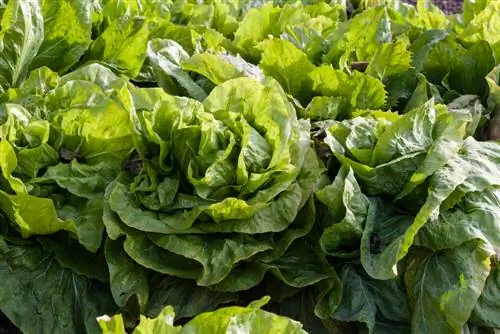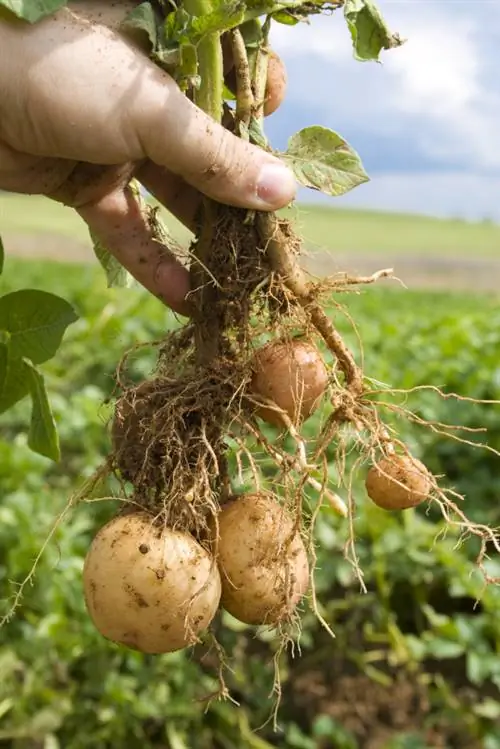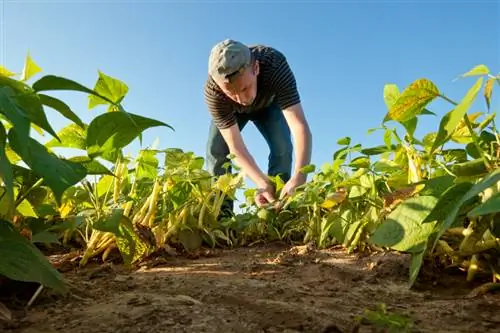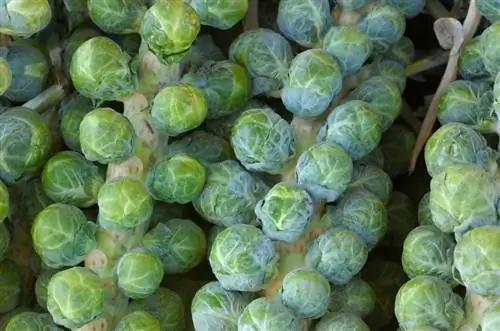- Author admin leonars@hobbygardeners.com.
- Public 2023-12-16 16:46.
- Last modified 2025-01-23 11:22.
In contrast to many other lettuces, sugarloaf is sown or planted late. Consequently, the harvest time should be sought in the second half of the year. But when exactly can we enjoy the tender, green leaves and how are the heads properly harvested?
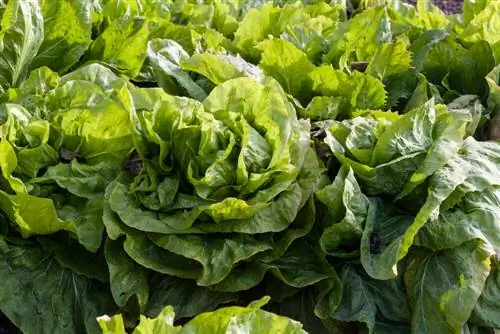
Start of harvest and harvest period
Sometime between mid-June and the end of July the sugar loaf comes into the garden bed. This period applies to both sowing and planting, as well as planting seedlings. After another eight to twelve weeks the heads are ready to harvest.
- Harvest begins at the end of September/beginning of October
- Saplings planted early are ready to harvest from August
Harvest gradually as needed
Sugarloaf is always freshly prepared. It cannot be dried or frozen without suffering unacceptable losses in quality. That's why you should only ever harvest as much as you can use in the short term. The remaining sugarloaf plants are best kept in the bed, because they will stay fresh there for many weeks if the weather is good.
How to harvest Sugarloaf Mountain
Harvesting sugarloaf is child's play. All you need is a sharp knife to cut the head of lettuce from the root. It is best to place the knife blade directly above the ground. Outer leaves can be removed if damaged. Otherwise, the entire head of lettuce is washed and processed further promptly.
Extend harvest into winter
Sugar loaf that has not yet been harvested can overwinter outside in the bed. This is a viable option, particularly in mild regions of the country or in mild winters. It is important that the temperature does not fall below -5 °C. After the first light frost, the taste of the leaves even becomes milder and sweeter.
Store sugarloaf for a while
If the sugar loaf in the bed is exposed to constant rain or there is a risk of long-term or severe frost, it is better to harvest the heads. If stored properly, sugarloaf can last up to two months indoors. The outer, loose leaves must first be removed. You can choose between different storage methods:
- Harvesting sugarloaf from the roots
- then loosely pound into damp sand
- or hang upside down in a cool room
- alternatively harvest without roots
- then wrap in damp newspaper and store in a cool place
Tip
Make sure that individual sugar loaf heads do not touch each other when storing, otherwise they could rot or become bruised.

